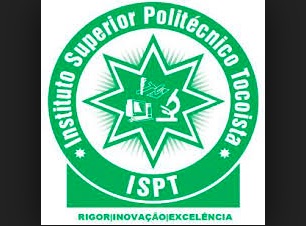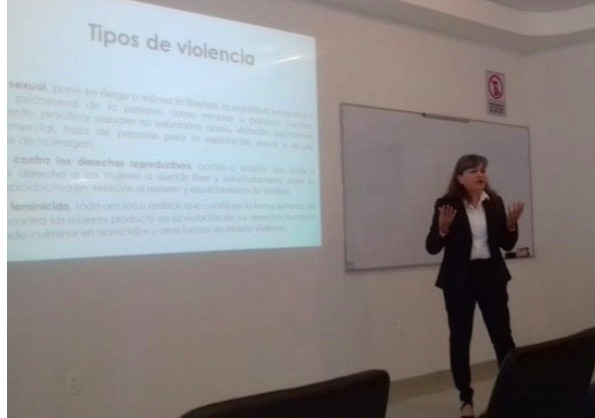EDUCATION FOR PEACE .
An article by Oumayma Omar from The Arab Weekly
Walking into the traditional Baghdadi house, one is amazed by the number of artworks displayed in the yard and on walls of the building’s spacious rooms.
Beit Tarkeeb, in Baghdad’s Karrada neighbourhood, is a platform for a variety of art forms and where young Iraqis can train, learn and expose their work covering visual arts, performing arts, films, music, literature, photography and interior design.
 Communicating through art. Visitors at Beit Tarkeeb in Baghdad’s Karrada neighbourhood.(Oumayma Omar)
Communicating through art. Visitors at Beit Tarkeeb in Baghdad’s Karrada neighbourhood.(Oumayma Omar)
“Our goal is to spread the culture of peace and its values. Art is our means to communicate our principles and alternatives to rampant violence wrecking the Iraqi society,” said Zeid Saad, 27, an artist and founding member of Beit Tarkeeb.
“We are an NGO that promotes contemporary arts for young talents aged 15-35 who wish to express their ideas through a variety of art genres, especially music, acting and dancing.”
Since its founding in 2015, Beit Tarkeeb has been organising the Baghdad Contemporary Art Festival, which is the only festival in Iraq that features young artists in artistic specialities such as contemporary art, literature, music, cinema and theatre.
A large installation of twisted and dangling wires captures visitors’ attention because of its unusual shape.
“It is the work of a young participant in a recent exhibition who wanted to raise awareness about the problem of poor power supply and the incredible amount of electrical wires on the streets of Baghdad,” Saad explained.
“Contemporary art is something new in Iraq and not many people understand the message the artists are trying to convey. Each work has an idea behind it and seeks to raise a problem that is affecting the society without directly touching on politics, religion or gender.”
“Art is not meant to cause conflict or controversy but constructive change. We believe in art’s ability to positively affect fellow Iraqis and foster the aspired change,” Saad added.
(continued in right column)
Question for this article:
A culture of peace in Iraq, Is it possible?
Do the arts create a basis for a culture of peace?, What is, or should be, their role in our movement?
(continued from left column)
Artists in Beit Tarkeeb stage surprise musical and theatre performances on the streets of Baghdad.
“The idea is to share with the public, not to be confined in a closed space,” Saad said. “Beit Tarkeeb succeeded in breaking conventional approaches through its performances, workshops and training courses with the support of European institutions advocating contemporary art.”
With the support of Germany’s GIZ, the group organises “art therapy” sessions during which participants play music with utensils and housewares. “Through these sessions participants work on expelling negative energy and replacing it with positivity. At the end they perform before an audience which helps them to gain hope and self-confidence,” Saad explained.
Beit Tarkeeb also offers therapy through reading and discussion of books chosen by therapists. They have a weekly Open Projector Night to present works from local and regional film-makers and Art Lecture Lab once a month, which is a public lecture series presented by specialists and devoted to the study and development of arts and sciences.
The artists at Beit Tarkeeb come from different backgrounds, different regions and various art fields but they unite under the shared goal of conveying peace. Some came from Mosul, where they lived under the tyrannical rule of the Islamic State.
Art therapies are designed to deal with post-war traumas and to spread a culture of tolerance and non-violence by promoting the principle of civil peace and preventing acts of reprisals, Saad said. National concerns, such as the absence of the rule of law and justice, corruption or widespread unemployment, feature heavily in discussions as well as concerns about tribal justice and punishment and the proliferation of weapons outside government control.
Atef Jaffal, an 18-year-old contemporary interior designer and volunteer worker with Beit Tarkeeb, speaks about his work with passion.
“I want to be part of this place that will propel contemporary art through the great support it is offering the youth without any charge,” he said. “Beit Tarkeeb gives young talents complete freedom in practising their art and using the place. That helps develop their artistic skills without pressure or preconditions.”
Mina Hamed, 16, was rushing to the drawing workshop in the building’s basement carrying her colour tubes, brushes and canvas. “I have been passionate about drawing since childhood. When I learned about the summer sessions at Tarkeeb, I couldn’t wait for school to finish. I wish to study medicine and art. There is no harm in practising both,” she said with a big smile.
Outside the restored Baghdadi house, contemporary artworks, including sculptures, installations and paintings, are featured on walls and in different corners of the yard.
“I am confident that Beit Tarkeeb will constitute a milestone in the course of Iraqi art. We aspire to be the nucleus from which contemporary arts in the country will expand,” Saad said.









